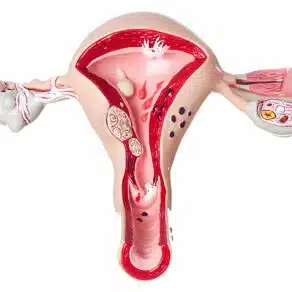Women’s health encompasses a broad spectrum of physical, mental, and emotional well-being. In recent years, there has been a significant push to understand and address the unique health needs and challenges faced by women. From reproductive health to mental wellness, what does women’s health cover women’s health covers a diverse range of topics, each crucial in ensuring overall well-being. In this article, we delve into the various dimensions of women’s health, shedding light on what it truly covers.
Table of Contents:
- Understanding Women’s Healt
- Reproductive Health
- Maternal Health
- Mental Health
- Sexual Health
- Hormonal Health
- Preventive Care
- Lifestyle Factors
- Emerging Trends in Women’s Health
Understanding Women’s Health:
Women’s health encompasses medical, emotional, and social issues that affect women differently than men. It acknowledges the biological and sociocultural factors that shape women’s health outcomes, emphasizing the importance of personalized care tailored to their specific needs.
Reproductive Health:
Reproductive health involves the maintenance of the reproductive system and encompasses aspects such as menstruation, contraception, fertility, pregnancy, childbirth, and menopause. Access to comprehensive reproductive healthcare services is fundamental for women to make informed choices about their bodies and reproductive futures.
Maternal Health:
Maternal health focuses on the well-being of women during pregnancy, childbirth, and the postpartum period. It includes prenatal care, labor and delivery services, and support for new mothers as they navigate the challenges of early motherhood. Ensuring safe and healthy pregnancies is essential for both maternal and child health outcomes.
Mental Health:
Women are disproportionately affected by mental health conditions such as depression, anxiety, and eating disorders. Mental health services tailored to women’s needs address the unique stressors and societal pressures they face, promoting emotional resilience and well-being.
Sexual Health:
Sexual health encompasses physical, emotional, and social aspects of sexuality throughout a woman’s life. It involves safe and consensual sexual practices, prevention and treatment of sexually transmitted infections (STIs), and addressing issues related to sexual dysfunction and reproductive coercion.
Hormonal Health:
Hormonal health plays a significant role in regulating various bodily functions, including menstruation, fertility, and menopause. Conditions such as polycystic ovary syndrome (PCOS) and hormonal imbalances can impact women’s health and require specialized care and treatment.
Preventive Care:
Preventive care focuses on early detection and intervention to prevent illness and promote wellness. This includes routine screenings such as Pap smears, mammograms, and vaccinations, as well as lifestyle modifications to reduce the risk of chronic diseases like heart disease and cancer.
Lifestyle Factors:
Lifestyle factors such as diet, exercise, sleep, and stress management profoundly influence women’s health outcomes. Promoting healthy behaviors and providing resources for women to adopt sustainable lifestyle practices are essential components of women’s health initiatives.
Emerging Trends in Women’s Health:
Advancements in medical research and technology continue to shape the landscape of women’s health. From precision medicine and genetic testing to digital health solutions and telemedicine, emerging trends hold promise for improving access to care and enhancing health outcomes for women worldwide.
Frequently Asked Questions:
- What are the most common health concerns for women?
- How often should women receive preventive health screenings?
- What are the available contraception options, and how do they work?
- How does menopause impact women’s health, and what treatment options are available?
- What resources are available for women experiencing mental health challenges?
Conclusion:
Women’s health encompasses a multifaceted array of physical, mental, and social factors that influence overall well-being. By addressing the diverse health needs of women across the lifespan, we can empower them to lead healthier, more fulfilling lives. Through education, access to quality healthcare services, and ongoing research, we can continue to advance the field of women’s health and improve outcomes for women everywhere.





